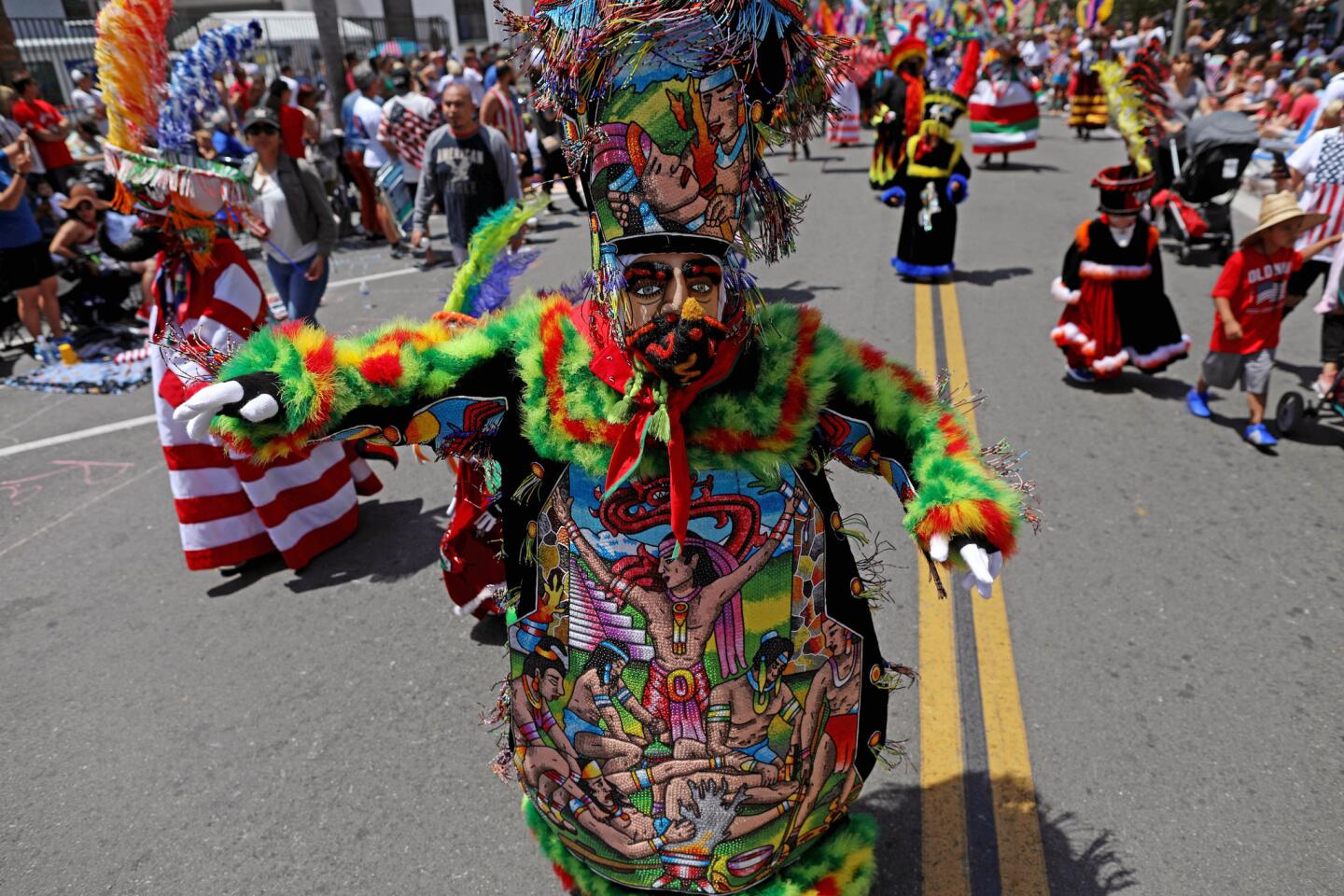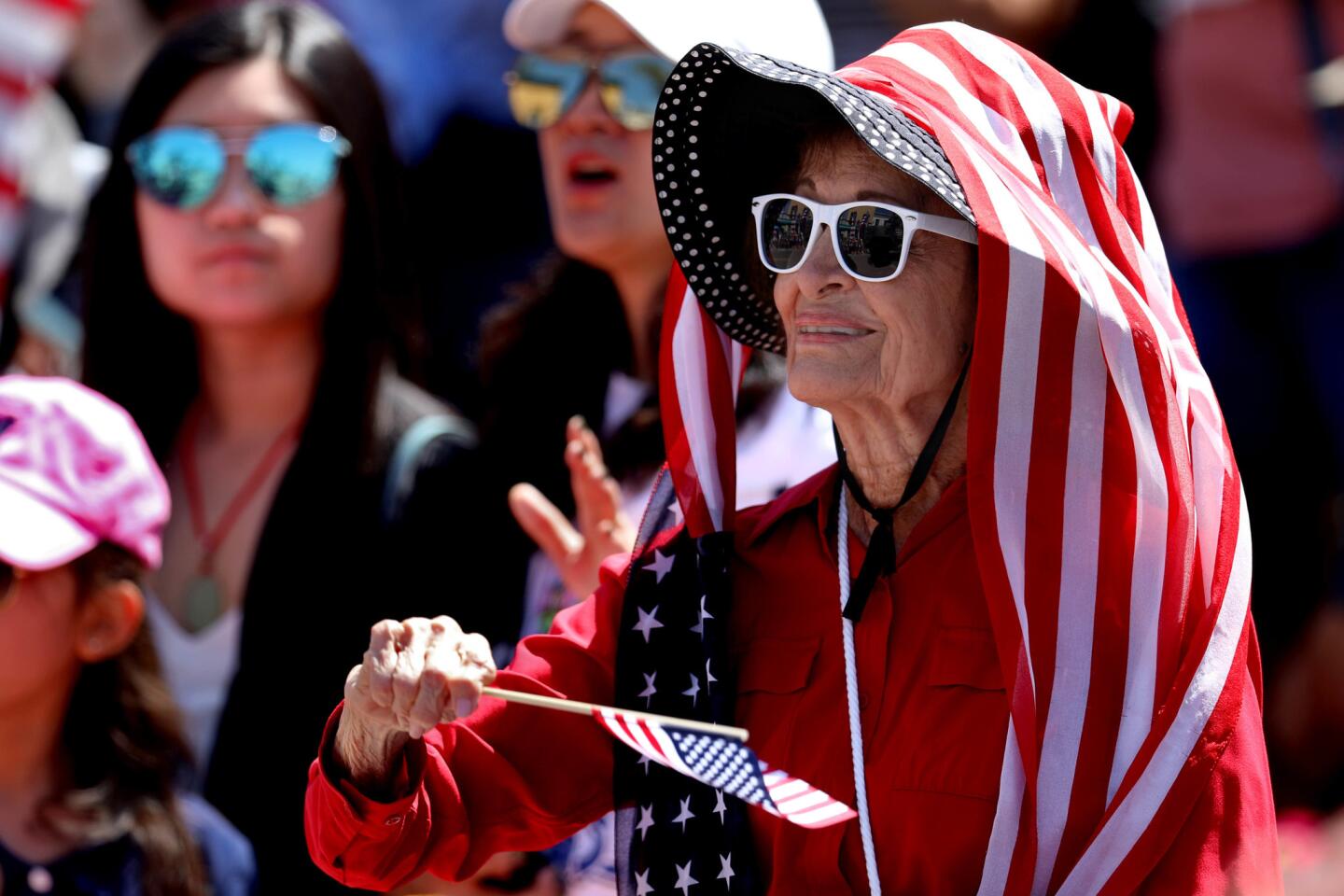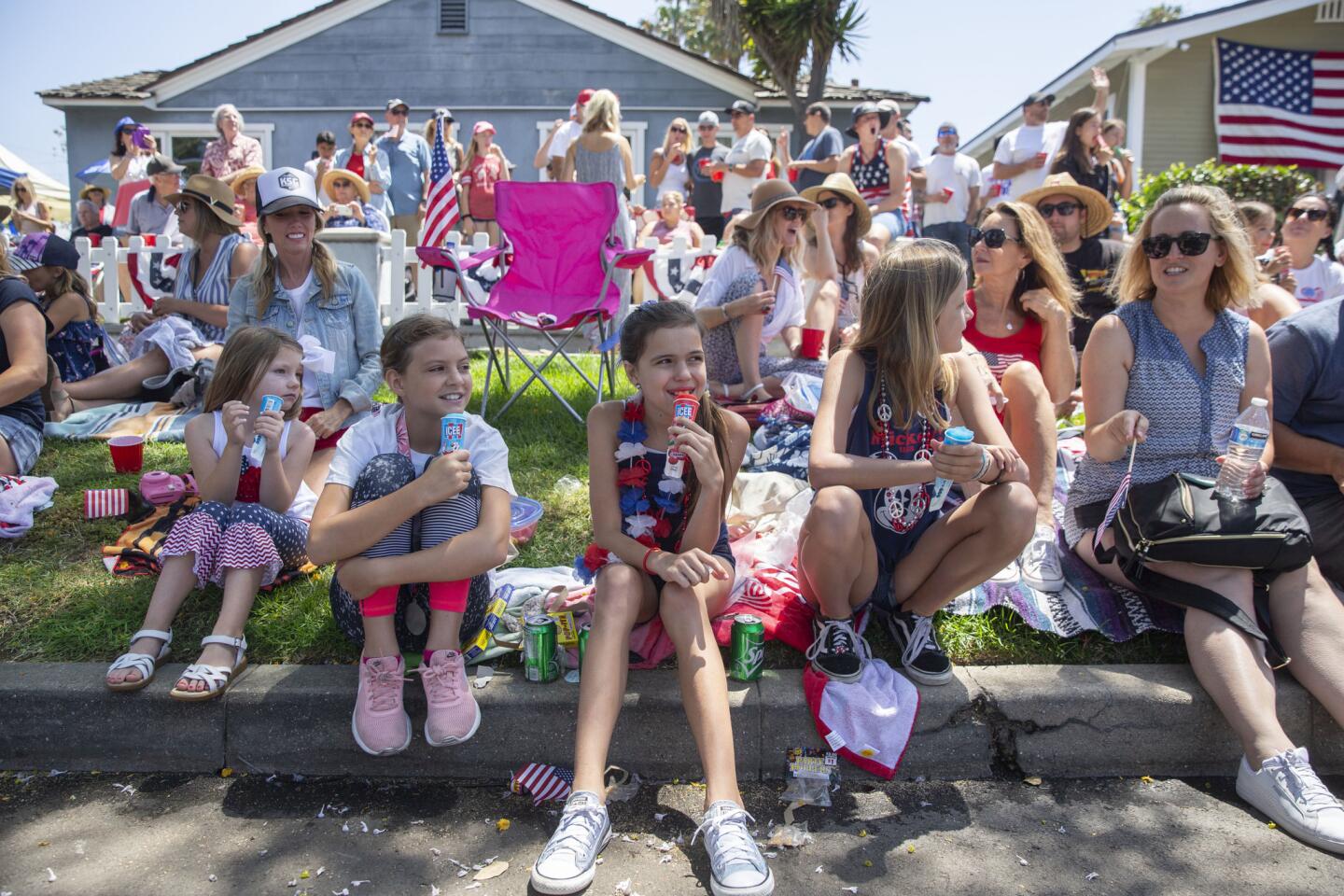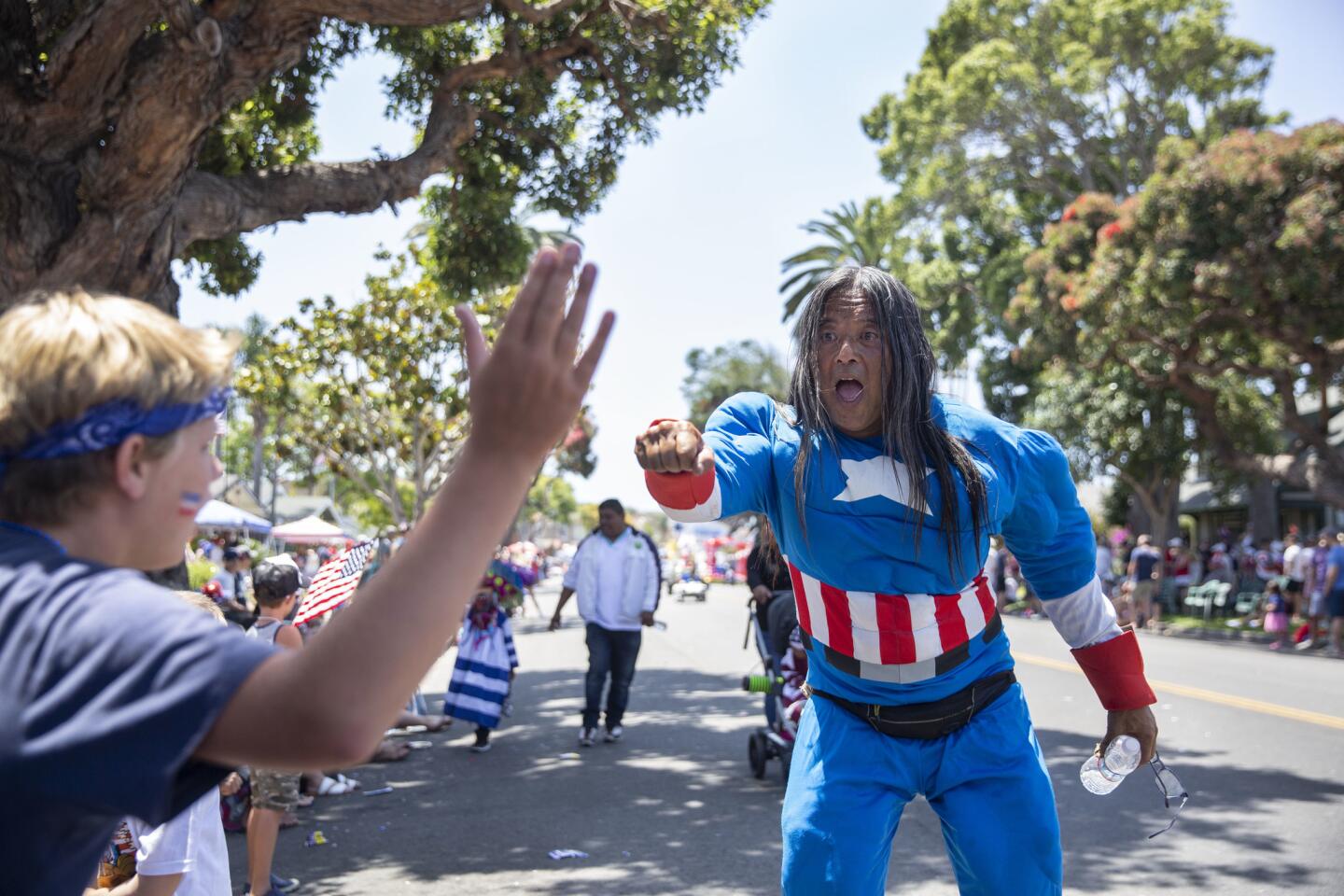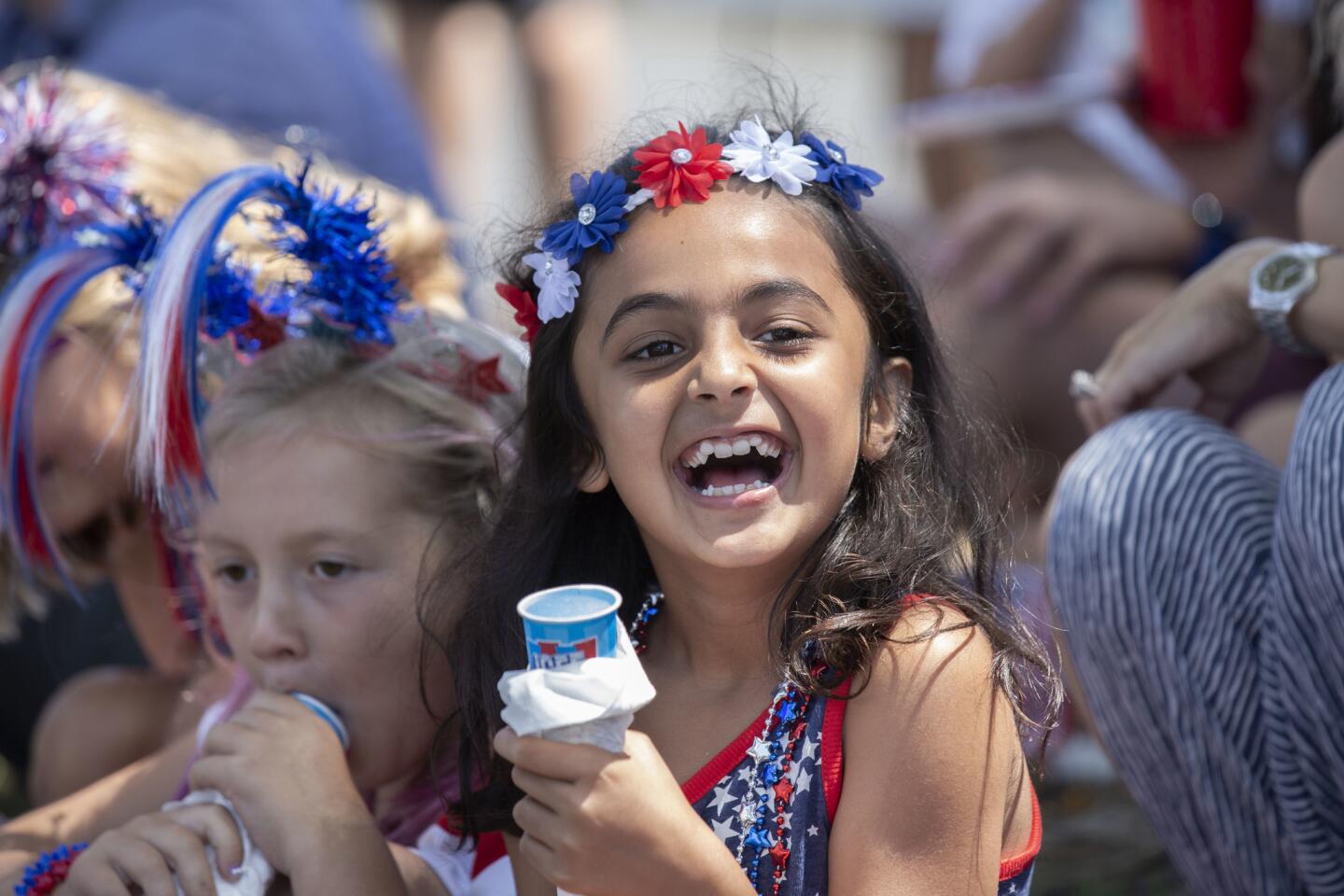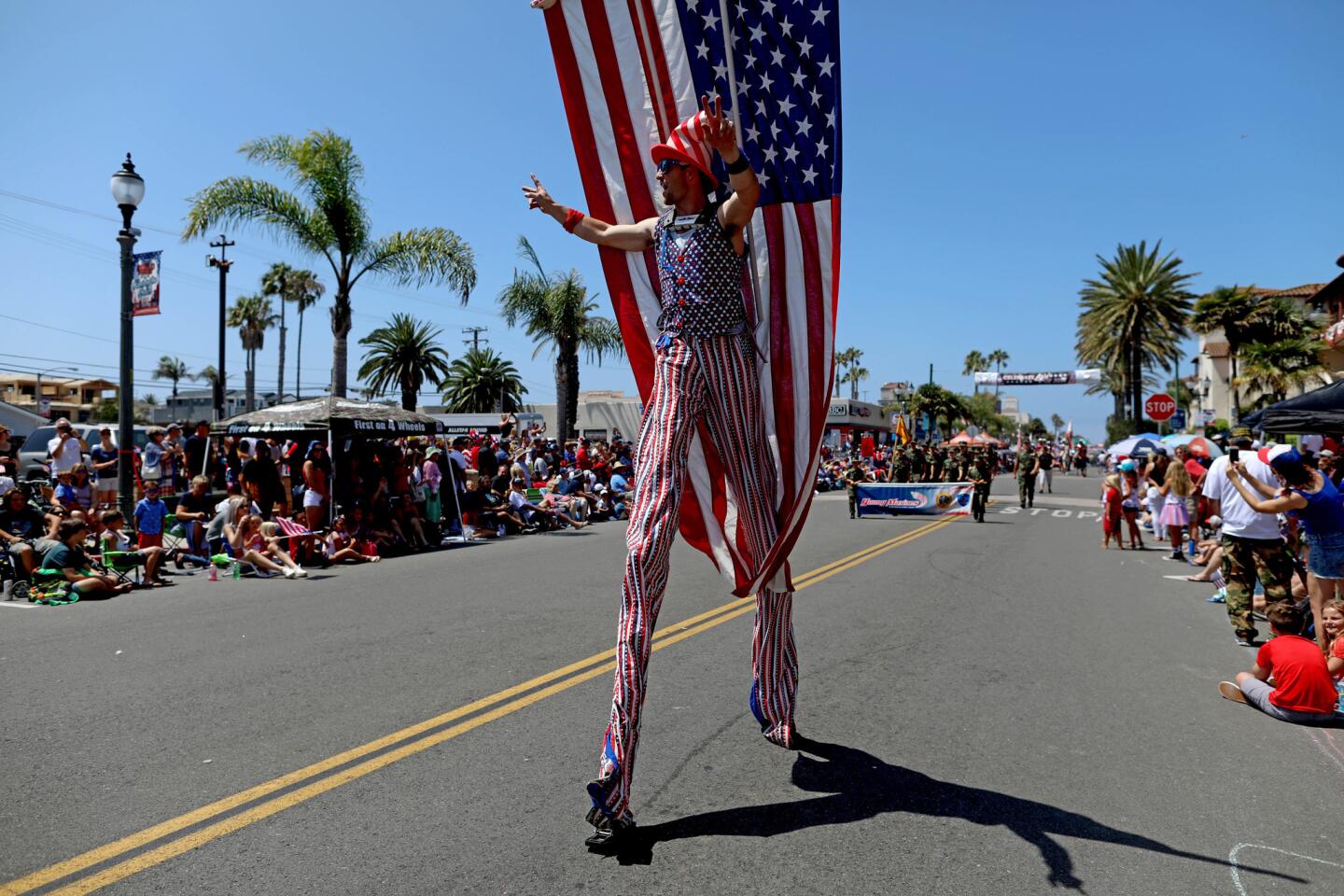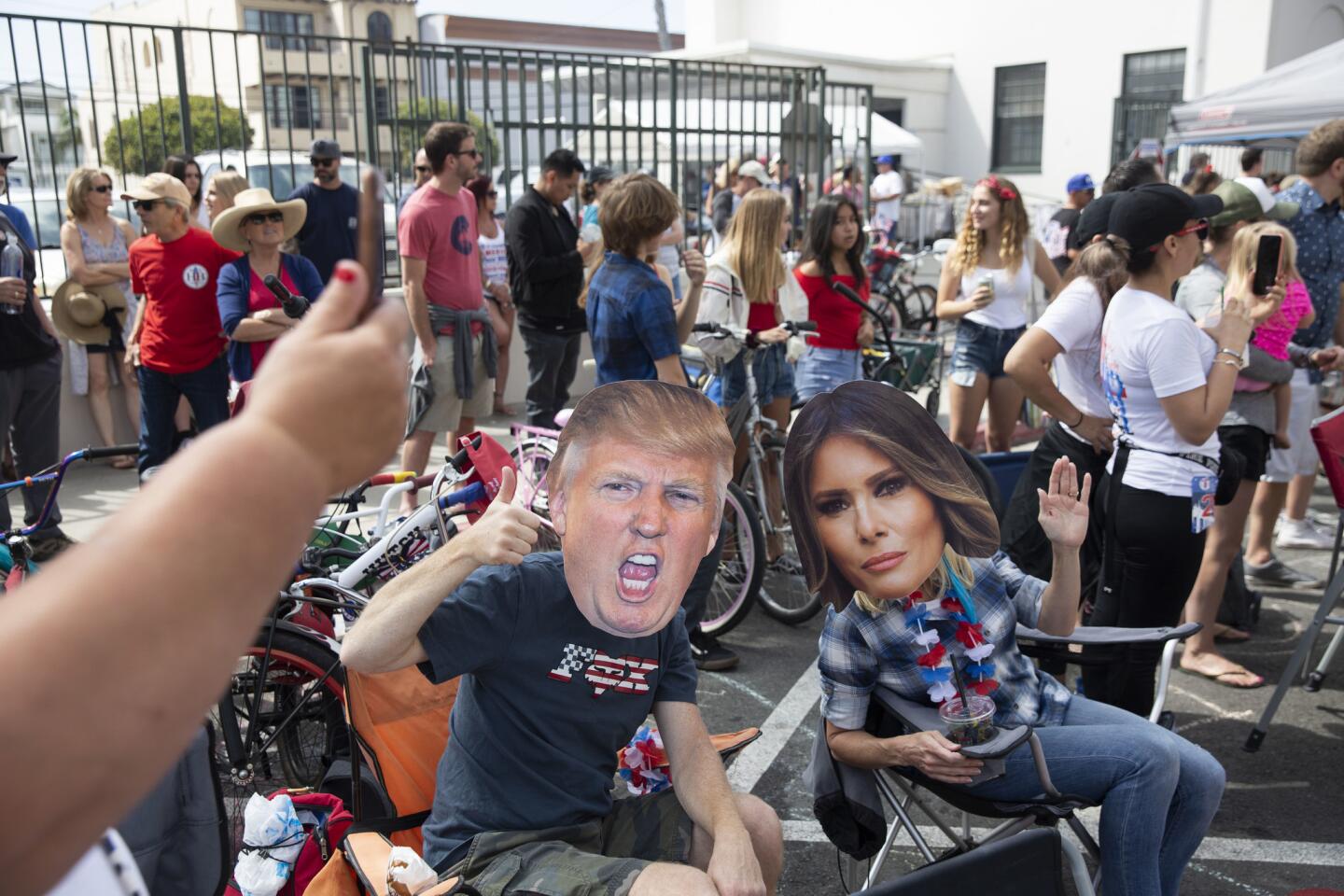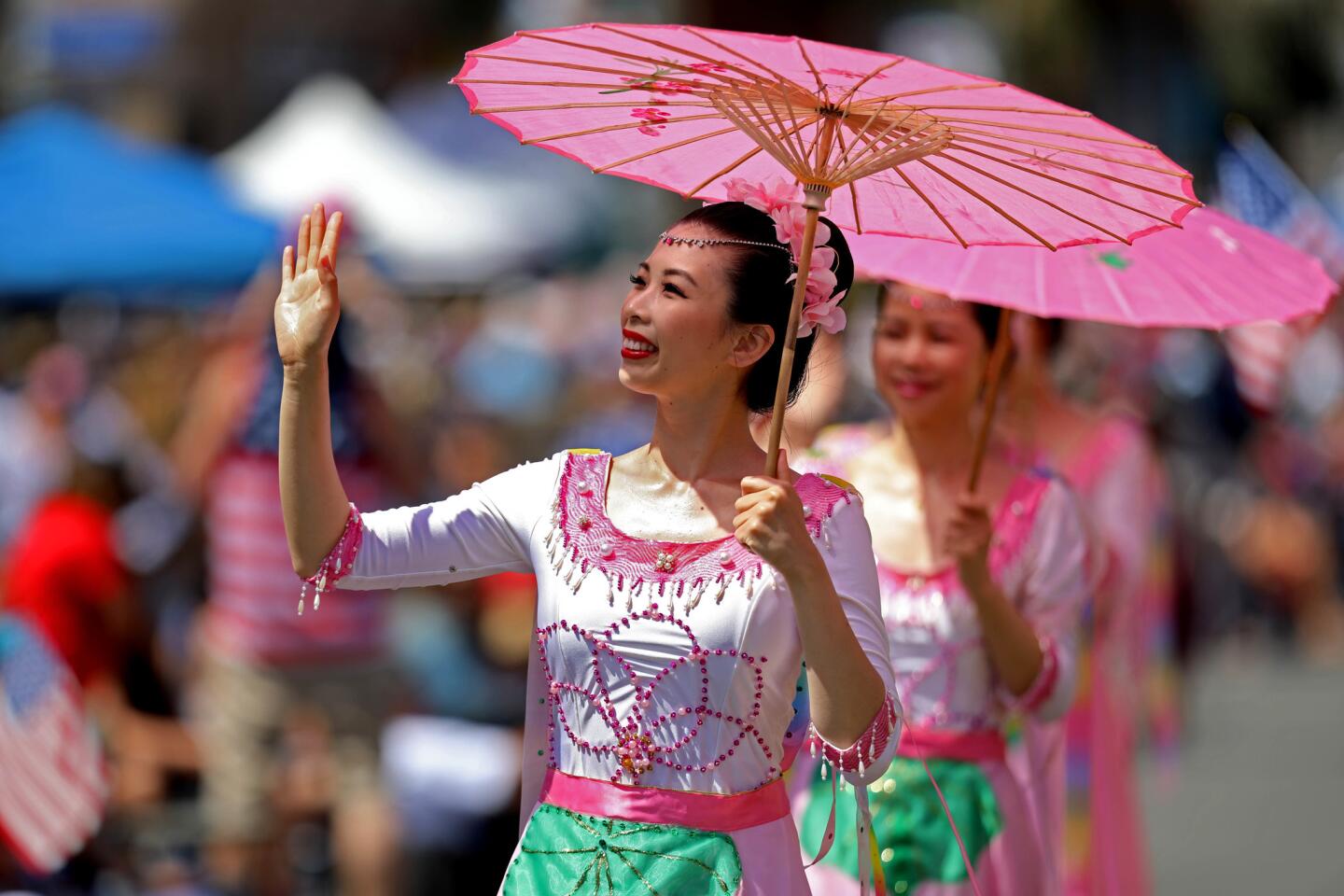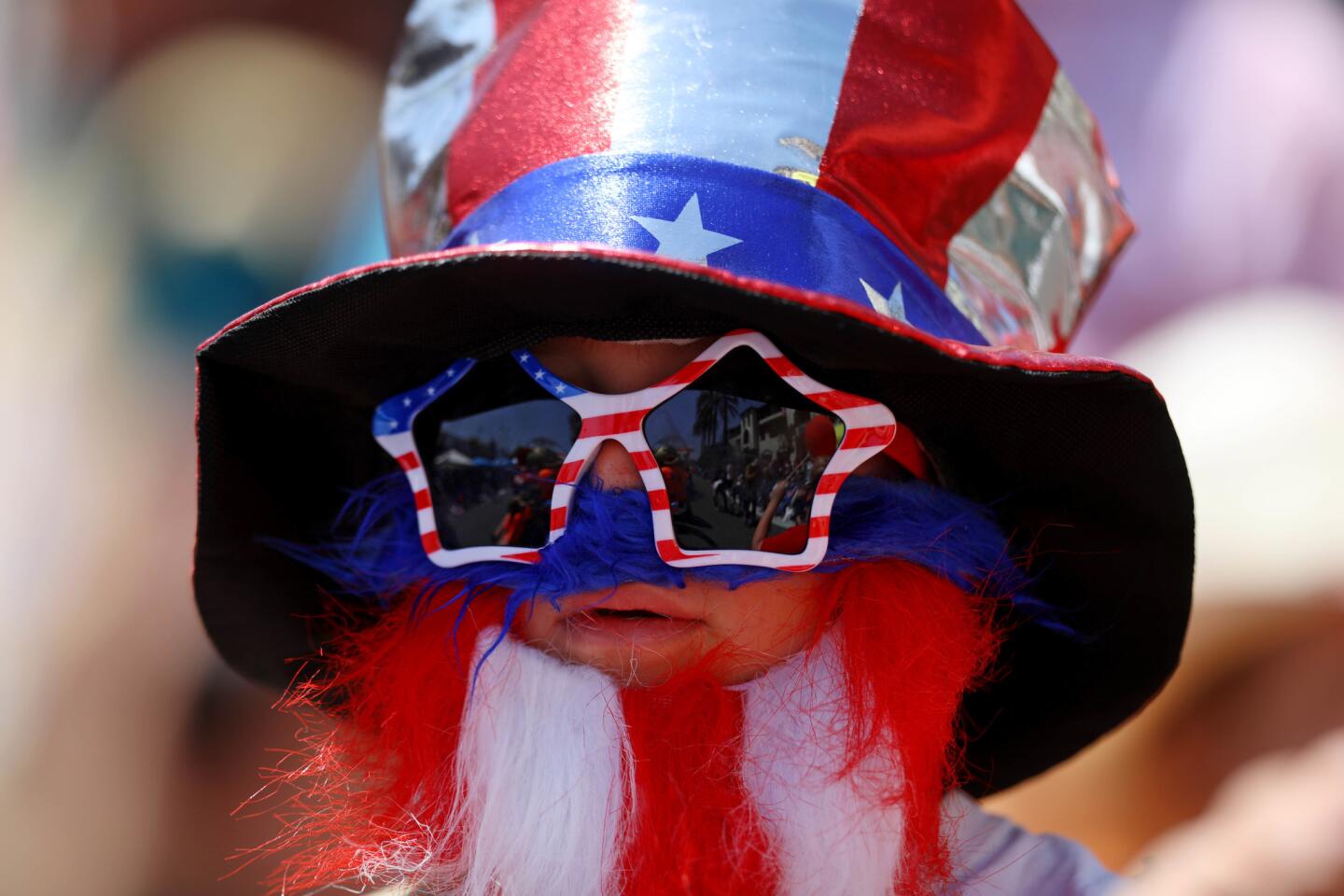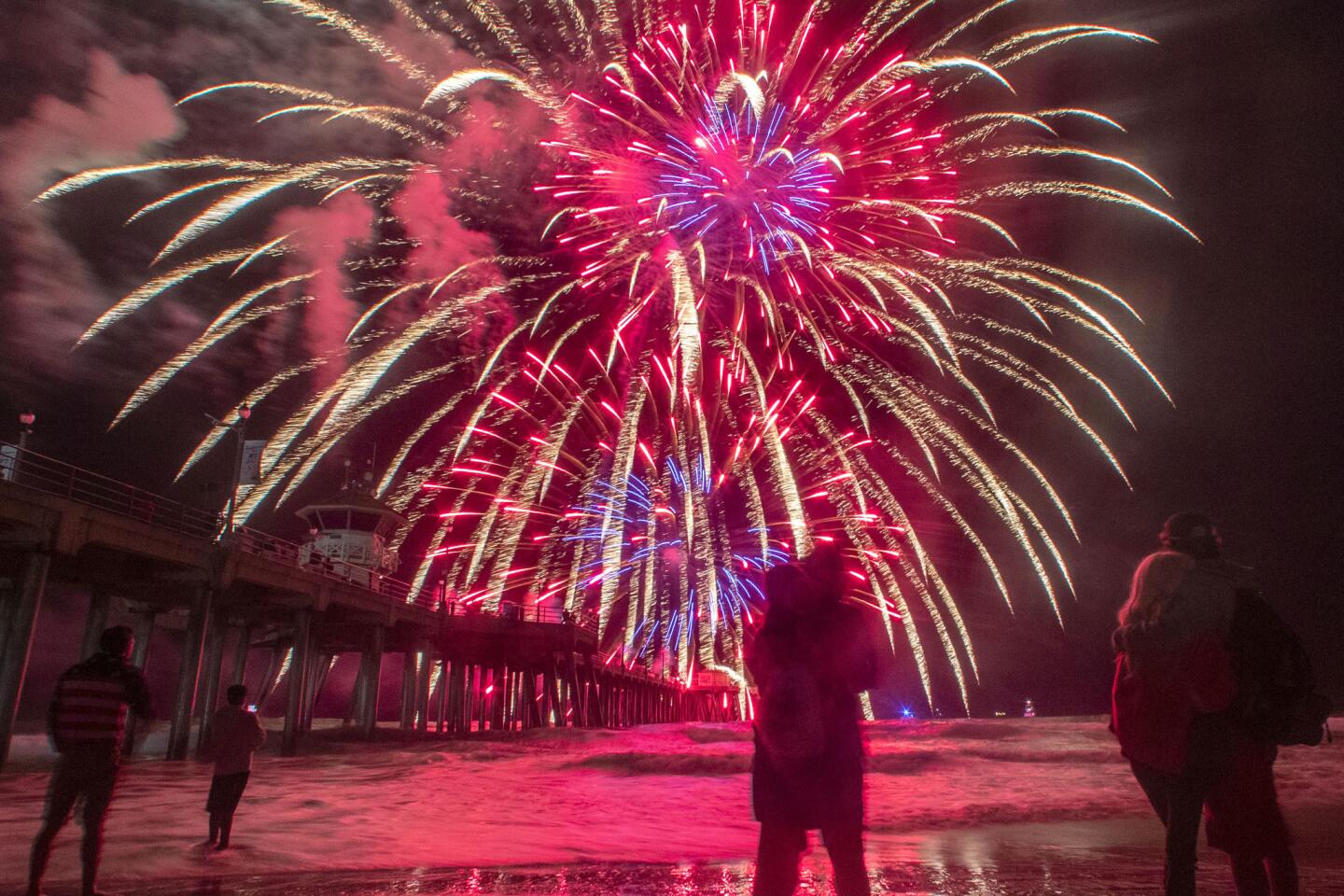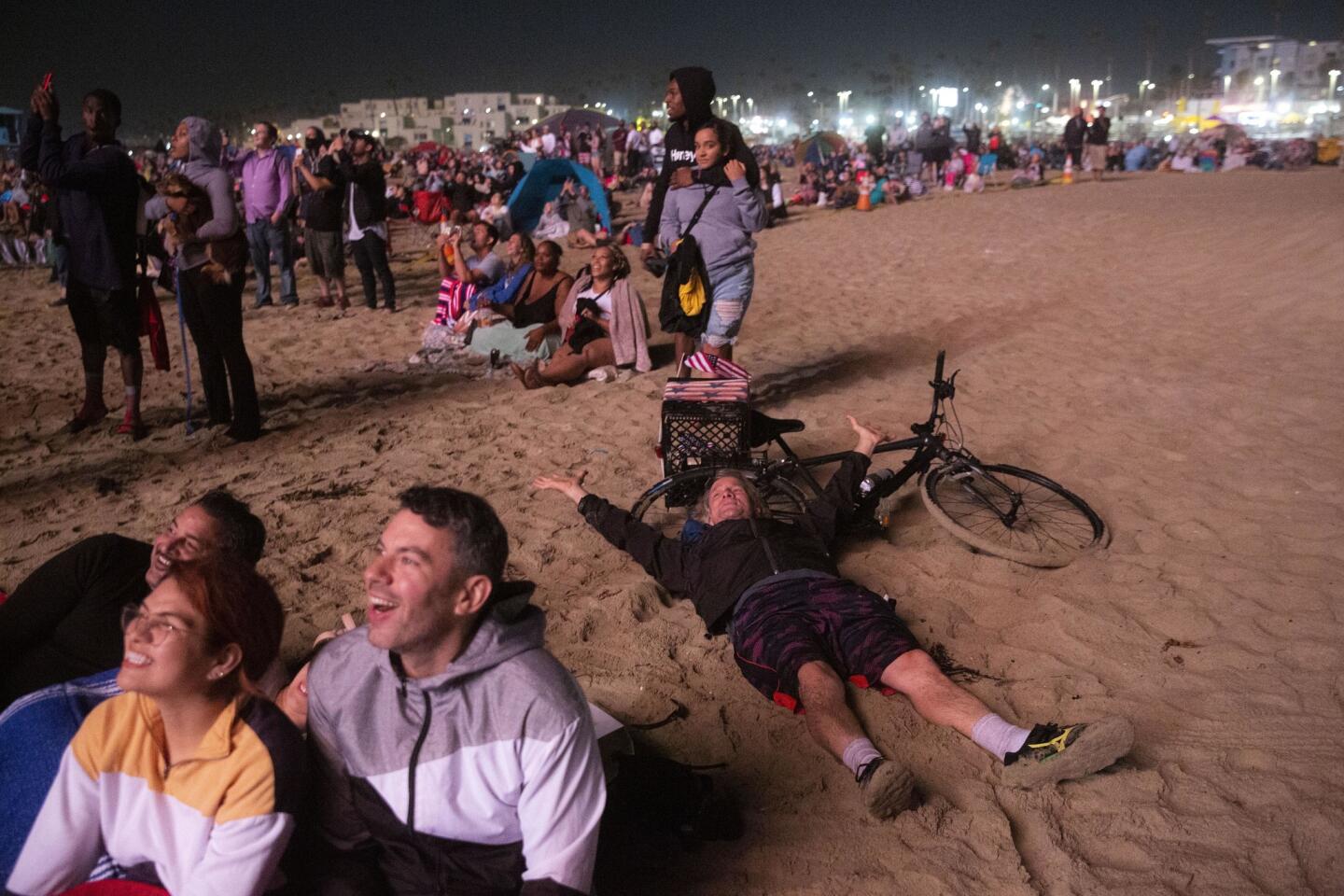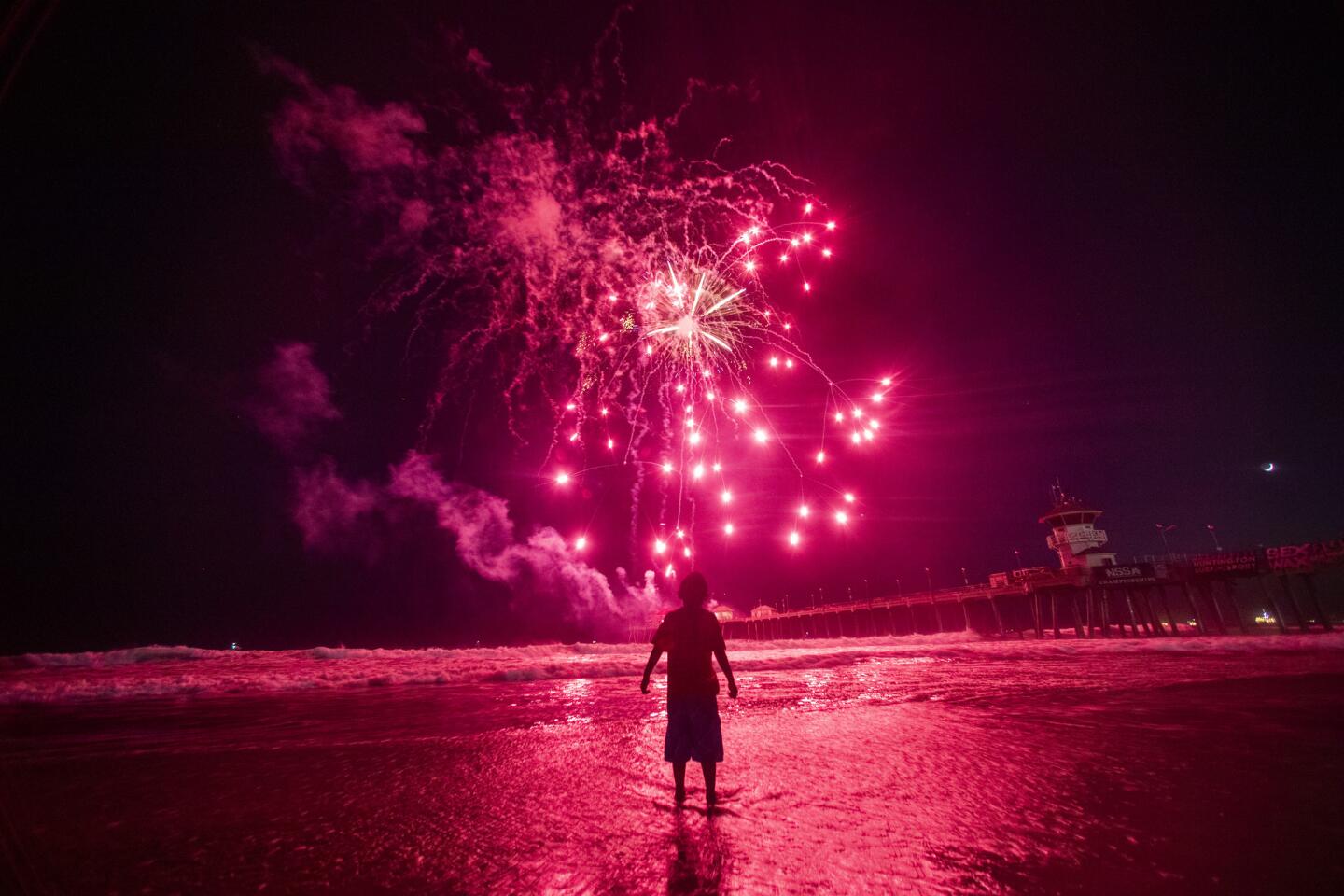Surf City parade a show of unity at a time of political divisions
- Share via
Minutes before taking part in Surf City’s Independence Day parade — a display of old Americana with quirky spectacles such as a diminutive dog with a flag-colored mohawk — Oscar Rodriguez couldn’t help but feel patriotic.
But the event, which has taken place since 1904 and is said to be the largest west of the Mississippi, felt different this year for the 25-year-old from Oak View, a Huntington Beach enclave that is predominantly home to Mexican immigrants.
Surf City’s Fourth of July Parade draws a crowd »
Rodriguez was at the parade to help coordinate Los Chinelos, dancers dressed in 8-foot-tall traditional Mexican costumes. But he said the politics of the moment weren’t far from his thoughts.
He said he didn’t know how to reconcile the American value of honoring immigrant roots with the Trump administration’s tough stance on asylum seekers and immigrants.
“We’re here celebrating … but at the end of the day we have people at the border — families and children — being taken advantage of,” he said. “It’s bittersweet.”
At a time when Americans appear deeply divided about the country’s direction, Rodriguez said he felt that split put a bit of a damper on the day.
Louis DeSipio, a professor of political science at UC Irvine, said that in the current political climate, “people will be questioning what it means to be patriotic in contemporary American society.”
“In terms of partisanship, we are as divided as we ever were in the early 21st century,” he said.
It’s been a year of “hardships” for America, said Mary Conover, 25, as she sat on a top of a float representing Old World Village, a German-themed shopping center in Huntington Beach, before it made its way down Pacific Coast Highway.
“People are angrier,” she said. “You see the decline in kindness.”
But on Thursday, all the tensions seemed to melt away, she said.
“I think Huntington Beach is the best place to celebrate the Fourth of July,” Conover said. “We are a melting pot.”
Once a reliable stronghold for the GOP that was dubbed the place where “all the good Republicans go to die” by Ronald Reagan, Orange County is changing demographically — with growing Latino and Asian populations — and politically.
In 2016, former Secretary of State Hillary Clinton became the first Democratic presidential candidate to win Orange County since the Great Depression. And the party flipped several Republican-held congressional districts in 2018 — including one held by Republican Rep. Dana Rohrabacher of Huntington Beach, who lost the seat he had held for 30 years to Laguna Beach Democrat Harley Rouda.
Matt Herrington, 60, a self-described conservative who lives in Huntington Beach, said he tries to leave politics out of the Fourth of July, saying it shouldn’t be tainted by a politically fractured nation.
“Today is a day where we are all red, white and blue,” he said. “People have to remember that we are all here as a group of people.”
Herrington, who wore shorts emblazoned with the U.S. flag, waved at a group of combat veterans marching past.
“I wish we could do this the third Saturday of every month — all come together and have fun,” he said.
Victor Valladares, an activist from Oak View who was there to support the Los Chinelos performance at the parade, said he doesn’t feel patriotic most days.
“I don’t consider myself a patriot because the word has been hijacked by the alt-right, white supremacists and white nationalists,” said Valladares, who is west county vice chairman for the Democratic Party of Orange County. “But today? Everyone is patriotic today.”
Larry Aguayo, a 72-year-old Army veteran who served in Vietnam, said he doesn’t believe the country is politically divided.
“We just have different points of view, and they are very strong,” he said, adding that he thinks it’s been worse before, such as when he served in Vietnam.
Aguayo, who is part of a veterans organization in Long Beach, said he’s marched in the the Huntington Beach parade for seven years now because “it feels like a coming home.”
Women, men and children waved at Aguayo, who said he served in the 27th Infantry Regiment, nicknamed the “Wolfhounds.” He smiled as he held a stack of American flags he gave away to the crowd.
“Thank you,” a woman shouted before applauding him.
“Thank you for your service,” a man yelled out.
“This is what we didn’t get after coming home from Vietnam,” he said. “After Vietnam I came home wounded and all I got was spit on and called a ‘baby killer.’ This is therapy for me.”
Support our coverage by becoming a digital subscriber.
Carcamo writes for the Los Angeles Times.
All the latest on Orange County from Orange County.
Get our free TimesOC newsletter.
You may occasionally receive promotional content from the Daily Pilot.
